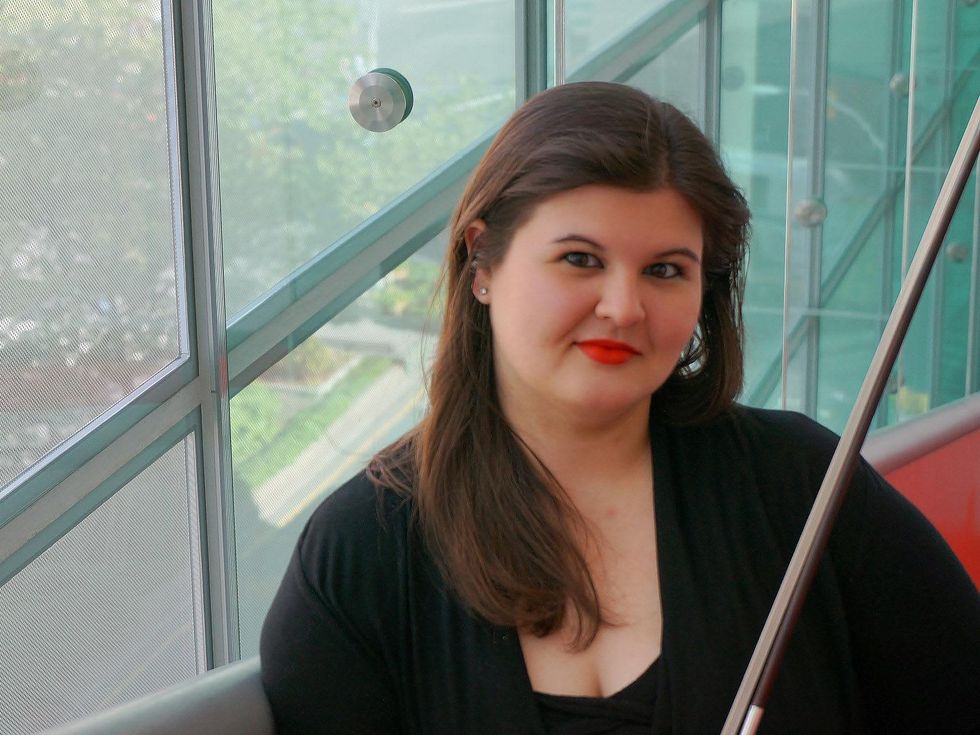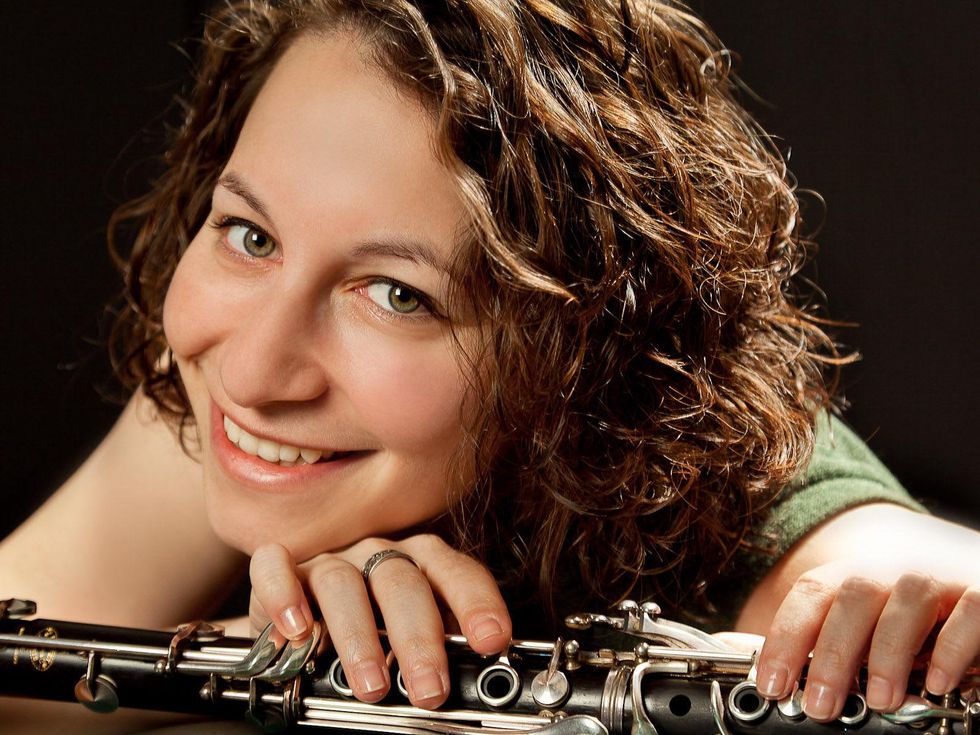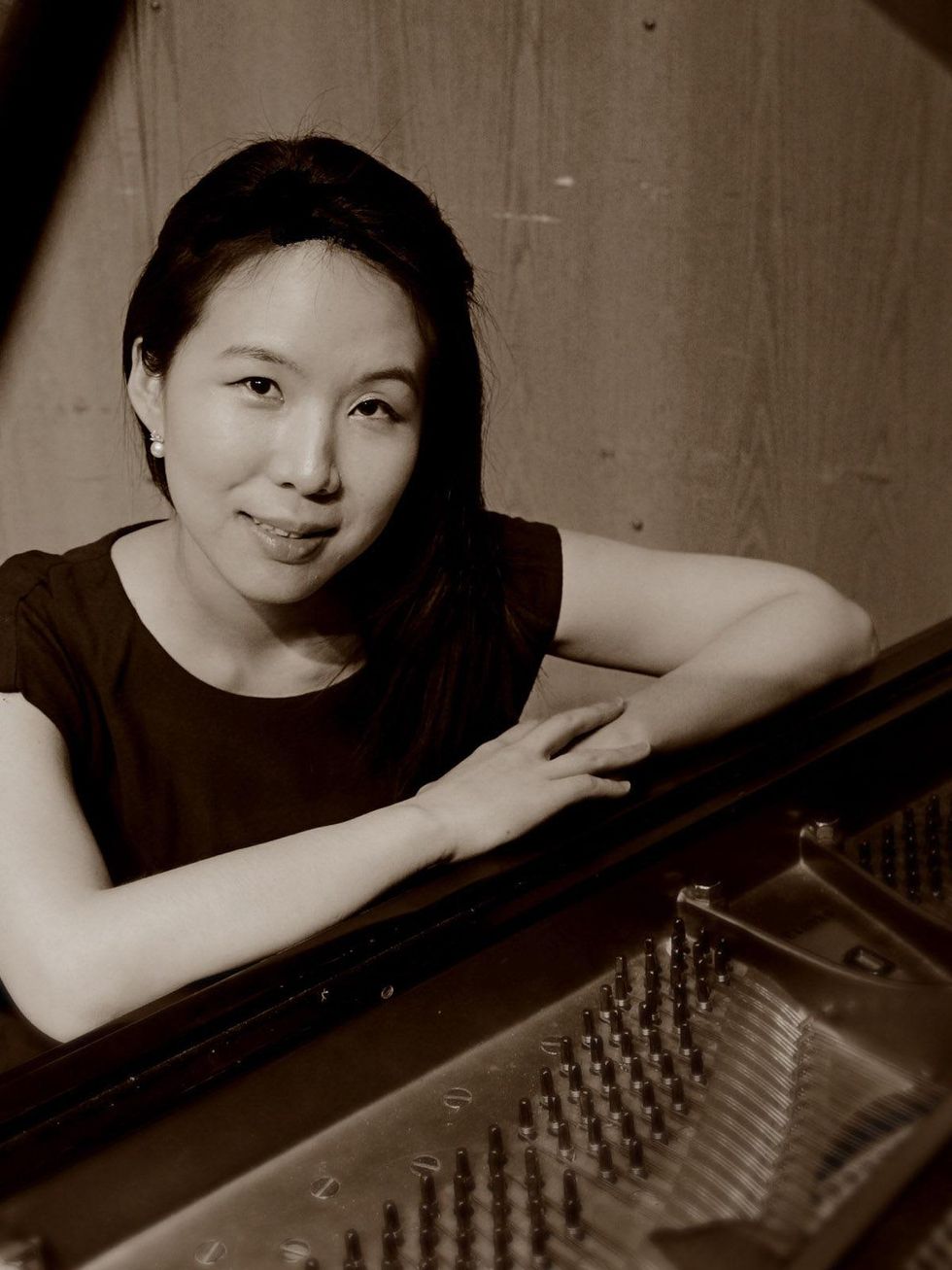Symphony Skydiving
A classical music feud: Competing for $25,000 pushes young artists to their limits
Imagine then exact moment when a skydiver is about to jump out of a plane. You look down into the abyss — there's no going back.
The massive adrenaline rush is how violinist Elizabeth Fayette — she prefers Libby — describes her experience waiting on the wings, treading on stage and preparing to sound the first notes of her solo showpiece as an entrant in the 38th Annual Houston Symphony Ima Hogg Competition, hosted by the Houston Symphony League. Fayette was one of 137 applicants that submitted audio recordings in hopes of being invited to audition in person, one of 10 musicians who performed at the semifinals on Thursday at Rice University's Shepherd School of Music and one of four who will move on to the final round, set for 8 p.m. Saturday at Stude Concert Hall at Rice.
Fayette, who just completed her masters degree in violin performance from The Juilliard School, chose two contrasting staples of the solo repertoire: Sibelius' Violin Concerto in D minor and Mozart's Violin Concerto No. 5 in A major. The virtuoso scores allowed her to explore diverse aesthetic characters of her fiddle — a dash of comedy and plenty of seriousness.
"Now that it's all over, I'm ready for a nap," she laughs.
Also advancing from the day-long semifinals are Ukrainian-born, Russian pianist Vladimir Khomyakov, Israeli clarinetist Moran Katz and South Korean pianist Min Jung Kim, who opted for Mozart's Piano Concerto No. 20 in D minor and Beethoven's Piano Concerto No. 5 in E-flat major.
"Some could say that the Mozart is a weak piece for a competition of this caliber," Kim explains. "But I think the tender qualities can move people to tears. I believe in the power of Mozart's music."
Wind players are often at a disadvantage when competing against pianists and string players. The repertoire is more limited and can sometimes lack the luster of big romantic violin and keyboard concerti. In training to take on Mozart's Clarinet Concerto in A major and Nielsen's Clarinet Concert, Katz spent equal time preparing technically and psychologically. Visualization is a powerful tool, but it sometimes can play mind games with a performer.
"Maybe we don't agree with the opinion or viewpoint. But when they are so convincing, because it's such a part of who they are, in the end, that's what artistry is about."
"I'm dying, I'm dying — these are the words that are going through my mind before I play," Katz, who graduated from Juilliard in 2010, jokes. "It's like being on a really bad flight during really bad turbulence.
"But as soon as I play the first note, and it works, I know I can do this. The first note is a big deal — it sets the tone for how the rest of the performance will go."
You could've cut the tension with a knife as the semifinalists waited for more than one hour for the verdict from the panel of judges. The deciders included James Feddeck, assistant conductor of the Cleveland Orchestra and recent recipient of the Sir Georg Solti Conducting Award; Monica Felkel, director of artist management at Young Concert Artists; and Charles Ward, former music critic of the Houston Chronicle.
"All three of us heard very similar things, but had different ways of describing them," Feddeck explains. "We are hearing these individuals in one performance, just today and what we will hear on Saturday evening. It's not a very complete view."
But within each performance snapshot, what the trio of judges focused on was identifying the markers of a complete artist.
"Someone who has an opinion about what they are doing, someone who can communicate that in a complete and wholehearted way, someone who can connect to the audience that part of their personality," he continues. "Maybe we don't agree with the opinion or viewpoint. But when they are so convincing, because it's such a part of who they are, in the end, that's what artistry is about."
It isn't about being right or wrong, he says. It's about being persuasive in offering a clear and fully dimensional interpretation that's contagious.
The stakes were higher than ever before for this classical music feud. The first prize was increased from $5,000 to $25,000 thanks to a gift from Tracy and John Dennis in honor of his grandmother, who was close friends with Houston philanthropist Ima Hogg, and the efforts of 2013 competition chairman April Lykos.
The Gold Medal winner will be offered a solo opportunity with the Houston Symphony at the Houston Chronicle Concert on July 13, while the Silver Medal winner will perform with the Houston Symphony at a Miller Outdoor Theatre concert, set for June 29.




